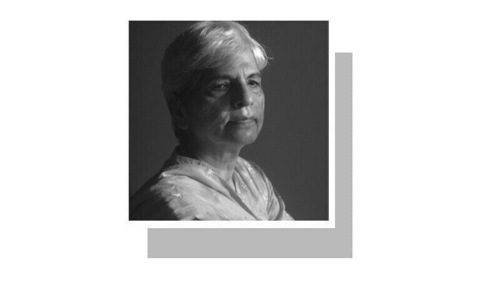 |
| Biddu's productions forced Indian movie composers to up their game, bringing in more talent, quite a lot of which happens to be Pakistani. —Photo credit: The Post Script Team/Creative Commons |
People always talk about unsung heroes, referring to some individuals who had a helping hand in something much larger. Rarely does it apply to someone who single-handedly revolutionised an industry.
Have you seen the movie Payback? One of its dialogues went something like this: “If you keep going high enough, it comes down to one guy”. Today, we will discuss that one “guy” who helped shape this region’s music and there is not nearly enough acknowledgement of his accomplishments, at least not in Pakistan.
Biddu, an Indian-born, England-based music producer had a career spanning five decades. His most recognisable production was Kung Fu Fighting (1974) and he enjoyed a career chock-full of hit upon hit in the ‘Disco’ era.
In the late 1970s, Disco was on the decline in the West on the rise in Asia, particularly in India. It was at this time that Indian filmmaker and actor Feroz Khan ran into Biddu in England in 1979. There, he asked Biddu to consider composing a track for his movie Qurbani. Although Biddu initially turned him down, he eventually accepted the offer.
Also read: Patari: This new Pakistani music site could be a game changer
Feroz Khan soon after ran into a 15-year old Nazia Hassan at a party in London, which brought Nazia Hassan and Biddu together (this part is important) and soon, Aap Jaisa Koi came into being. For the traditional music of Indian films of the time, the sounds in this track and the voice of Nazia Hassan were quite unique.
The song and everyone involved in its making became overnight sensations.
Being a smart businessman, Biddu signed Nazia Hassan and her brother Zohaib, to produce an Urdu album. By his own admission, he modeled them after the popular American brother-sister duo, 'The Carpenters'.
This collaboration brought us the album Disco Deewane (1981). The sales records for the album were phenomenal and 100,000 records were sold in a day. Not only was it a hit in Pakistan, it did well in India too, which was huge for a non-soundtrack album in the region. It even topped the charts as far and wide as Brazil.
 |
| Nazia Hassan and Biddu with Shashi Gopal and Kalpana Gopal (founders of Magnasound Records) —Photo credit: Magnasound/Creative Commons |
With the success of Disco Deewane, these three collaborated on three more albums (four in total): Star/Boom Boom (1982), Young Tarang (1984) and Hotline (1987). They sold a combined total of 60 million records worldwide.
With these hits, Biddu redefined the concept of pop music in this region; it was no longer limited to movie soundtracks; it was an industry on its own.
The trend caught on with numerous Pakistani bands and musicians now coming to life and redefining modern music. All of this culminated at, what should now be considered a historic event, the Music '89 concert hosted by the Hassan siblings. Without that, there would be no music in Pakistan today.
Music '89 was, to say the least, whatever the opposite of a dominoes effect is.
``
In the '90s, Biddu went to India to work with more talent, as the Pakistani industry had already taken a certain shape.
There, Biddu created music with Shweta Shetty, and then later with Alisha Chinai on the album Made in India (1995). This started a trend of successful pop music, despite soundtracks being a valuable commodity in India too. He collaborated with another sibling duo Shaan and Saarika, and later with Sonu Nigam as well.
The pop music trend in India, though extremely popular, did not endure, as it was soon cannibalised by the Indian film industry. However, Pakistan’s music industry still thrives. Biddu later joined hands with Junaid Jamshed to work on his first solo album Uss Rah Par (1999), which was also a considerable success.
That was two decades of successful music set off by one common denominator, who – for reasons we can explore till the cows come home – fails to receive the same high praise here, as he does in the west, or even India.
People usually associate Biddu’s work with the Hassan siblings, but they overlook just how much of our modern music is his doing. Thanks to Biddu, we can have a category such as “best of '80s”, and it is full of darn good music. That is a massive accomplishment in itself, especially when you consider the fact that the Zia era was in full swing at the time.
Take a look: Times of the Signs
India’s current music trends would also not be possible without Biddu as his productions forced movie composers to up their game, bringing in more talent (quite a lot of which happens to be Pakistani).
Biddu went on to the Far East and worked with Japanese duos, spreading his Midas touch everywhere, eventually returning to England where he continues to work.
I feel someone with that great a contribution should get more than a blog entry every few years.











































